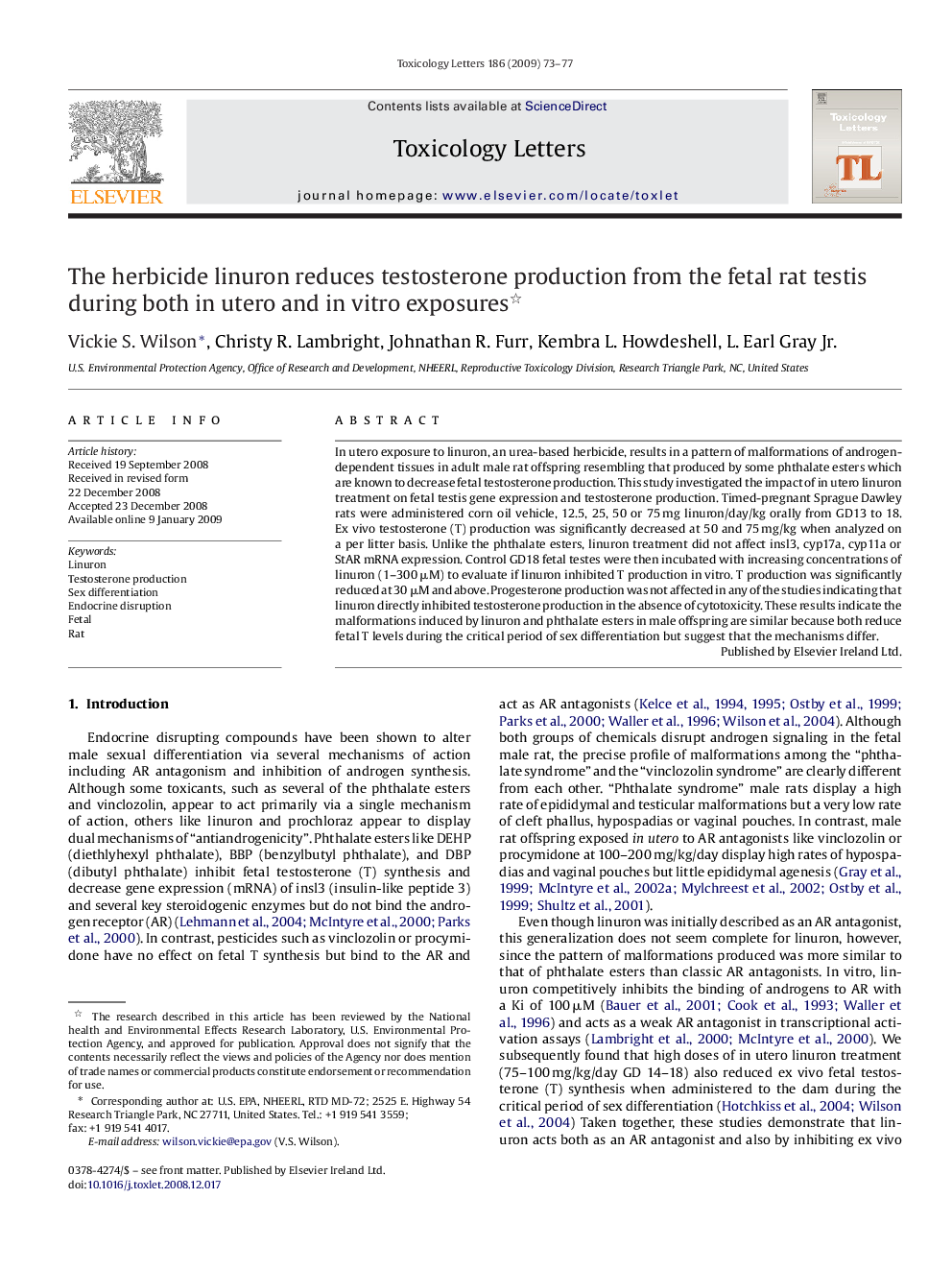| کد مقاله | کد نشریه | سال انتشار | مقاله انگلیسی | نسخه تمام متن |
|---|---|---|---|---|
| 2601169 | 1133304 | 2009 | 5 صفحه PDF | دانلود رایگان |

In utero exposure to linuron, an urea-based herbicide, results in a pattern of malformations of androgen-dependent tissues in adult male rat offspring resembling that produced by some phthalate esters which are known to decrease fetal testosterone production. This study investigated the impact of in utero linuron treatment on fetal testis gene expression and testosterone production. Timed-pregnant Sprague Dawley rats were administered corn oil vehicle, 12.5, 25, 50 or 75 mg linuron/day/kg orally from GD13 to 18. Ex vivo testosterone (T) production was significantly decreased at 50 and 75 mg/kg when analyzed on a per litter basis. Unlike the phthalate esters, linuron treatment did not affect insl3, cyp17a, cyp11a or StAR mRNA expression. Control GD18 fetal testes were then incubated with increasing concentrations of linuron (1–300 μM) to evaluate if linuron inhibited T production in vitro. T production was significantly reduced at 30 μM and above. Progesterone production was not affected in any of the studies indicating that linuron directly inhibited testosterone production in the absence of cytotoxicity. These results indicate the malformations induced by linuron and phthalate esters in male offspring are similar because both reduce fetal T levels during the critical period of sex differentiation but suggest that the mechanisms differ.
Journal: Toxicology Letters - Volume 186, Issue 2, 25 April 2009, Pages 73–77